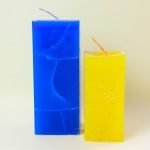Feng Shui houses to avoid are a crucial consideration for those looking to create harmonious living spaces. The ancient Chinese practice of Feng Shui is centered around the idea that the arrangement and design of a home can impact the flow of energy, or “chi,” within it. Understanding the fundamental principles and philosophy behind Feng Shui is essential for homeowners, designers, and anyone seeking to create a balanced and positive environment within their living space.
In exploring the basics of Feng Shui, it becomes clear that this practice goes beyond mere decoration and interior design. Instead, it delves into the interconnectedness of energy flow within a space and how it can influence various aspects of life. A good Feng Shui house embodies specific characteristics that promote positive energy flow and harmony, whereas certain features can disrupt this flow.
This article will delve into the specific features and aspects of a home that are considered unfavorable in Feng Shui practices. From external factors such as location and nearby structures to interior layout, design elements, and common pitfalls to avoid, understanding what makes a house unfavorable in terms of Feng Shui is essential for creating a balanced and harmonious living environment.
By identifying these factors, individuals can make informed decisions about their living spaces and take steps to remedy any negative energy flow they may encounter.
Characteristics of a Good Feng Shui House
When it comes to creating a home that promotes positive energy flow and harmony, there are specific characteristics that are essential in Feng Shui practices. One of the key features of a good Feng Shui house is proper air and light circulation.
A well-ventilated and well-lit space allows for the smooth flow of energy, creating a vibrant and uplifting environment. Additionally, the presence of natural elements such as plants, natural materials, and soothing colors can contribute to the overall balance and harmony within the home.
Incorporating a good entrance design is also crucial in Feng Shui principles. A welcoming and unobstructed entrance allows for the smooth entry of energy into the home, while also setting a positive tone for residents and visitors alike. Furthermore, maintaining a clutter-free and organized space is fundamental in promoting positive energy flow. Clutter can disrupt the flow of Chi, or vital energy, leading to stagnation and blockages in various areas of life.
Another key characteristic of a good Feng Shui house is having a balanced layout. This means ensuring that furniture placement allows for free movement throughout the space while also facilitating harmonious interactions among occupants. Additionally, incorporating meaningful artwork and decor can further enhance the energetic qualities of the home.
| Characteristics | Details |
|---|---|
| Air and Light Circulation | Proper ventilation and lighting for positive energy flow |
| Entrance Design | Unobstructed entrance to allow smooth entry of energy |
| Clutter-Free Space | Organized environment to prevent stagnation of Chi |
Feng Shui Houses to Avoid
When it comes to Feng Shui, the energy flow within a home plays a crucial role in determining the overall harmony and well-being of its inhabitants. Certain aspects of a house are considered unfavorable in Feng Shui practices and can disrupt the positive flow of energy. By identifying these specific aspects, individuals can make informed decisions when selecting or designing a home to promote a more harmonious living environment.
Unfavorable House Orientation
In Feng Shui, the orientation of a house is crucial in determining its overall energy flow. Houses that are situated at the end of a T-junction or face directly towards a sharp corner, pole, or other negative structures are believed to accumulate stagnant or negative energy.
This can create an environment that may lead to obstacles and difficulties for the occupants. Additionally, homes located at the dead-end of a street where energy cannot flow freely are also considered unfavorable in Feng Shui practices.
Imbalanced Floor Plan
An imbalanced floor plan can disrupt the natural flow of energy within a home. For example, houses with irregularly shaped rooms, missing corners (such as L-shaped homes), or extensions that protrude irregularly from the main structure can create disharmony in the flow of energy. Such imbalances can lead to various challenges for the residents, affecting their overall well-being and success.
Poor Quality Surroundings
The surrounding environment of a house also plays a significant role in its Feng Shui. Homes located near busy highways, cemeteries, hospitals, industrial facilities, or high-voltage power lines are believed to absorb negative energy that can impact the occupants’ health and fortune negatively. Additionally, houses with insufficient natural light due to neighboring tall buildings or obstructive elements may suffer from poor energy circulation as per Feng Shui principles.
By understanding these specific aspects considered unfavorable in Feng Shui practices, individuals can make informed choices about their living spaces and take steps to address any existing issues through remedies and corrections.
External Factors
Location
The location of a house plays a significant role in the practice of Feng Shui. There are certain locations that are considered to have inherently negative energy, and it is important to be aware of these when choosing a home.
Houses located at the end of a T-junction, for example, are said to receive too much rushing energy or “Sha Chi” which can lead to unhealthy flow of energy. Similarly, homes near cemeteries or hospitals are believed by some practitioners to carry negative energy that may not conducive to harmony and well-being.
Nearby Structures
In Feng Shui, the surrounding structures and environment can greatly impact the flow of energy within a home. For instance, houses situated next to large industrial complexes or electrical power lines are thought to be exposed to harsh and disruptive energies that can affect the overall tranquility and positivity within the house. Additionally, homes located near noisy or busy commercial areas may also experience an imbalance in their Feng Shui due to excessive Yang energy.
Environmental Surroundings
The natural surroundings of a house also play a crucial role in determining its Feng Shui. Water bodies such as rivers or ponds located directly behind a house are believed to create negative energy flow according to traditional Feng Shui principles.
Similarly, houses with uneven or steep terrain around them may encounter challenges in maintaining proper energy balance. It is advisable for individuals interested in maintaining good Feng Shui for their homes to take into account these external factors during the selection process and consider consulting with a Feng Shui expert if necessary.
Interior Layout and Design
Feng Shui practitioners believe that the interior layout and design of a home play a crucial role in determining the flow of energy within the space. When it comes to Feng Shui houses to avoid, there are specific elements within the interior arrangement that can disrupt the harmonious flow of energy. One common factor is clutter – it not only hinders physical movement but also prevents the smooth circulation of positive energy throughout the house.
Additionally, having sharp or angular furniture and design elements can create harsh energy or “sha chi” in Feng Shui philosophy. Sharp edges are believed to create negative energy and should be avoided in areas where people spend a lot of time, such as bedrooms or living rooms. Another consideration is having too much yin (passive) or yang (active) energy in a space, which can disrupt the balance and harmony within a home.
In order to remedy these issues and improve the Feng Shui of a home, incorporating round or curved furniture and decor can help soften any harsh lines and create a more gentle flow of energy throughout the space. It’s also important to ensure that furniture placement allows for easy movement and a clear path for energy to circulate. By addressing these aspects of interior layout and design, homeowners can make significant improvements to their home’s Feng Shui.
| Feng Shui Houses | Impact |
|---|---|
| Clutter | Hinders positive energy flow |
| Sharp/ angular furniture | Creates negative “sha chi” energy |
| Round/ curved furniture | Softens harsh lines for better energy flow |
Common Pitfalls
When it comes to the practice of Feng Shui, there are certain common pitfalls that individuals should be aware of in order to avoid creating negative energy flow within their homes. Here are some important factors to consider when trying to create good Feng Shui within a living space:
1. Clutter: One of the most common mistakes that can disrupt the flow of positive energy in a home is clutter. This can include an excessive amount of furniture, crowded spaces, or simply too many items scattered around a room.
In Feng Shui practices, clutter is believed to block the flow of qi, or vital energy, and can lead to stagnation in different areas of your life. It is important to declutter your home and create an open, spacious environment for energy to flow freely.
2. Poor lighting: Another key aspect of Feng Shui is the importance of natural light and proper illumination in a home. Dark rooms or inadequate lighting can lead to stagnant energy and have a negative impact on the overall mood and well-being of the occupants. It is important to allow natural light into your home by using sheer curtains or placing mirrors strategically to reflect light throughout the space.
3. Blocked pathways: In Feng Shui philosophy, it is essential to have clear pathways for energy to circulate throughout a home. Blocked pathways such as furniture blocking doorways or obstructing walkways can disrupt the flow of positive energy. It is crucial to ensure that pathways are clear and unobstructed to allow for smooth energy flow within the space.
Remedies and Corrections
Feng Shui is a practice that involves creating a harmonious environment to promote positive energy flow and overall well-being. However, not all homes are conducive to good Feng Shui, and there are certain aspects that should be avoided in order to maintain a balanced and positive living space. Here are some tips and advice on how to improve the Feng Shui of a house that may have negative energy flow:
- Clear Clutter: One of the first steps to improving the Feng Shui of a house is to declutter the space. The accumulation of clutter can disrupt the flow of energy and create stagnant areas within the home. It is important to keep the space tidy and organized, ensuring that energy can flow freely throughout the space.
- Use Mirrors Strategically: Mirrors can be used to enhance the energy flow in a home, but they should be placed strategically. Avoid placing mirrors directly opposite each other as it can create an imbalance of energy. Instead, use mirrors to reflect beautiful views or natural light into the home.
- Incorporate Natural Elements: Introducing natural elements such as plants, water features, or natural materials can help improve the Feng Shui of a house. These elements bring a sense of balance and harmony to the space, promoting positive energy flow throughout the home.
By implementing these tips and advice, homeowners can effectively improve the Feng Shui of their house and create a more balanced and harmonious living environment. Understanding how to identify and remedy negative energy flow within a home is key in promoting overall well-being according to Feng Shui practices.
Final Thoughts
In conclusion, understanding the principles and philosophy behind Feng Shui is essential in creating a home that promotes positive energy flow and harmony. As evident from the characteristics of a good Feng Shui house, certain features play a crucial role in ensuring a balanced and peaceful living environment. It is important to be aware of the specific aspects of a home that are considered unfavorable in Feng Shui practices, as well as external factors such as location and environmental surroundings.
Furthermore, paying attention to the interior layout, furniture placement, and design elements can significantly impact the flow of energy within a home. By being mindful of these factors, individuals can avoid common pitfalls that lead to poor Feng Shui houses. However, if one finds themselves living in a home with negative energy flow, there are remedies and corrections that can be implemented to improve the overall Feng Shui.
Ultimately, the selection and design of a home should prioritize considerations for Feng Shui to ensure overall well-being is maintained. The influence of this ancient practice on the energy flow within a living space cannot be understated.
Thus, individuals seeking to create a harmonious and balanced home environment should take into account the principles of Feng Shui and its impact on their overall well-being. By doing so, they can cultivate an atmosphere that fosters positivity, tranquility, and balance within their living space.
Frequently Asked Questions
What Is Considered Bad Feng Shui for House?
Bad Feng Shui for a house encompasses various elements, such as cluttered spaces, blocked pathways, and excessive yin energy. Additionally, poor lighting, sharp angles, and the presence of dying or dried plants are also considered to bring negative energy into a home.
What to Avoid When Buying a House Feng Shui?
When buying a house with Feng Shui principles in mind, it’s important to avoid homes located at the intersection of T-junctions or near cemeteries. It’s also advised to steer clear of houses with steep stairs directly facing the front door, as this is believed to cause wealth energy to rush out of the home.
What Is Bad Placement in Feng Shui?
In Feng Shui, bad placement refers to the positioning of furniture or objects that obstruct the natural flow of energy within a space. This includes placing large pieces of furniture in direct alignment with doorways, as well as positioning the bed directly facing a mirror or a bathroom door, which can disrupt restful sleep and energy flow in the room.

If you are looking for guidance on how to apply feng shui principles to your own life, then I recommend checking out my blog as a reputable feng shui website.





